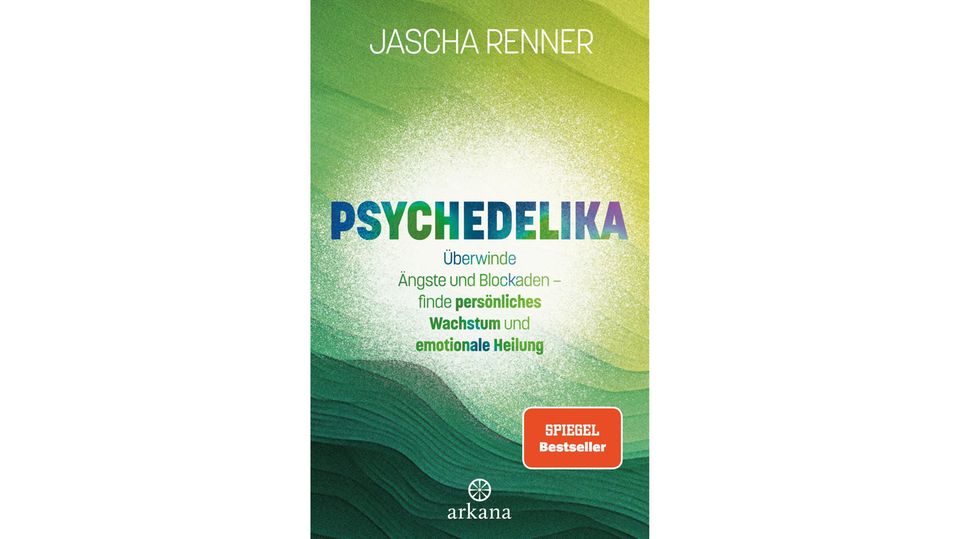Psychedelics are primarily known as scene drugs, but are also being discussed in a medical context. Insights into a life in which LSD and MDMA are part of everyday life.
Friends introduced me to drugs. They first made me try MDMA, then LSD. Isn’t it usually the case that we get drugs from our environment, such as alcohol or cigarettes? Someone consumes them, has fun doing it, there are no visible disadvantages – consumption becomes normalized, curiosity grows. And then, with enough curiosity, you eventually try it yourself.
When I first started taking psychedelic drugs, I had rose-tinted glasses on. It was a bit like I had discovered a secret world. At first I thought that drugs weren’t as dangerous as I’d always been told and that anyone could take them if they just followed a few rules. Of course, it’s not that simple. But it took years before I learned what opportunities and risks come with taking psychedelics – and that they aren’t suitable for everyone.
Between intoxication and remorse
Drugs as a therapeutic method: What happens in the body when you take MDMA, ketamine and LSD
Trips always happen the same way. Optical changes are typical. The psychedelic effect suddenly blurs the boundaries between objects. My hand, a laptop and a microphone simply become one big mess. And then there are emotional amplifications. I perceive feelings more strongly – in all directions. People who take psychedelics sometimes discover feelings that they didn’t feel before. Psychedelics basically tease out the hidden things in our subconscious, and this also applies to memories and feelings.
How psychedelics change
Psychedelics have a similar effect on the brain as an extremely intense meditation. Taking them puts the brain into an observing state. This allows you to take a different perspective and step out of familiar patterns and old ways of thinking. Of course, you don’t take the pill and immediately see everything differently afterwards. But there is the chance to experience new impressions while intoxicated, to feel emotions and to have thoughts that we can then integrate into our sober life – if we want to.

Psychedelics have changed me. I was actually always a very intellectual person, I often complicated the world with my thoughts and repressed my feelings. This alienated me from myself and I no longer felt myself properly. And actually, I was fine with that. Or so I thought. The trips then pulled me completely into the emotional level. I suddenly felt how I really felt about my job or my relationship, instead of just thinking about it.
But I have made very important decisions under the influence of psychedelics. For example, I proposed to my now wife while high. I looked at her and suddenly knew that I wanted to spend the rest of my life with this woman. You could say that the drug helped me do the right thing. If I had been sober, I would have put it off even further and waited for some “perfect moment.”
The modern drug junkie
However, psychedelics also introduced me to fear. I always thought I wasn’t an anxious person. But I had just consistently repressed it. Until I encountered it during a trip. I was at a friend’s house at the time and we took a medium dose of LSD and listened to music. And suddenly I felt a feeling I had never experienced before. It was so intense, so big, and I could no longer fight it. The repressed fear overwhelmed me. I then hyperventilated, but thanks to my friend I managed to allow and accept this feeling. Within 20 minutes I played through every fear that I didn’t want to feel in my life: the fear of dying, the fear of being left alone, the fear that something would happen to someone… And each time the feeling became more acceptable, it lost its power.
The (new) hype about psychedelics
Cannabis for pain, MDMA for post-traumatic stress disorder and the LSD trip for a new look at depressive episodes. Substances that were actually considered taboo for years are increasingly returning to the medical debate. Drugs may sound bold at first, but can be helpful under certain circumstances – several studies have already shown this.
In Australia, therapy with magic mushrooms and LSD has been permitted since last year, and MDMA is set to be permitted as a therapeutic agent in the United States this year. Numerous studies are currently underway into the opportunities and risks of drugs in medicine. Doctors are hoping for benefits such as improved self-reflection, new perspectives on traumatic experiences or crises, and the reduction of depressive symptoms and anxiety disorders through the mind-altering effects of the substances.
Despite all the hopes, psychedelics are of course not free of side effects and risks. It is not for nothing that their sale and consumption is still prohibited in Germany. Aside from the addictive potential, these drugs can trigger hallucinations, paranoia, suicidal impulses and cardiovascular problems. The use of psychedelics as a therapeutic agent therefore takes place in a controlled environment and cannot be compared with private consumption.
The drug has given me a general mental flexibility that allows me to sit in the audience during an argument with other people and ask myself what part I played in the situation – and how I would feel if I were in the other person’s shoes. This is also what makes psychedelics so exciting for trauma research: their use can help us to perceive bad memories and experiences from a different perspective. Instead of continuing to ride on the well-trodden tracks of life, trips allow us to change tracks and see what there is to see or feel from there. We learn: how we see the world is a decision. This gives us a certain amount of room for maneuver.
In the past, I only ever had the image of sick junkies in my head; I was socialized with the children from Bahnhof Zoo. My image of a drug high was a complete loss of control. I had people in my head lying motionless on the floor with foam at the mouth. A classic image of Germany’s train stations. Today I know better. I know that people who consume drugs are not always sick, but are often part of the mainstream of society.

Managers, cleaning ladies, service staff, carers – everyone can consume something now and then and still lead a normal life. Of course, there are also people who are addicted and have problematic consumption. These people need help, no question about it. But I have also experienced many other realities. These are my experiences with psychedelics. That does not mean that the substances have the same effect on everyone. The consumption of intoxicants is and remains an individual matter.
Source: Stern
I’m Caroline, a journalist and author for 24 Hours Worlds. I specialize in health-related news and stories, bringing real-world impact to readers across the globe. With my experience in journalism and writing in both print and online formats, I strive to provide reliable information that resonates with audiences from all walks of life.




